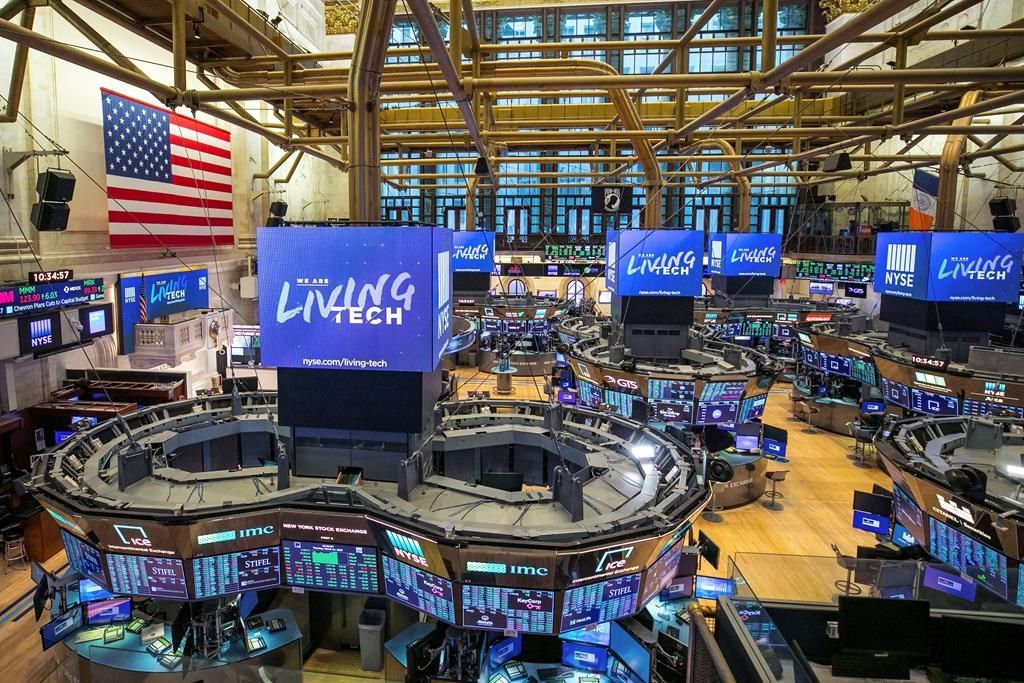
- Indices
- Stocks
Recession fears in the US are falling
Do you want to know how to make money from this?
Register for free and get expert advice, access to a training course and webinars.
Key points:
- All key indices (Dow Jones, S&P 500, Nasdaq) showed positive dynamics.
- Strong financial results of large companies such as Walmart, Cisco and Nike contributed to the growth of the market.
- Good retail sales figures in the US indicate the continuation of consumer demand.
Positive dynamics were observed on Wall Street during trading on Thursday. All major indices demonstrated growth. The most significant increase was shown by the Nasdaq Composite Index, which increased by more than 2%. Such dynamics were caused by the publication of July data on retail sales in the United States, which indicate the preservation of stable consumer demand, which reduces fears about the imminent onset of a recession in the American economy.
The Dow Jones Industrial Average Index closed at 40,563.06 points, adding 1.39% or 554.67 points. The S&P 500 Index also demonstrated positive dynamics, increasing by 1.61% or 88.01 points and reaching 5,543.22 points. The Nasdaq Composite Index added 2.34% or 401.90 points, closing at 17,594.50 points.
Walmart, Cisco, Nike lead growth
The positive momentum in the U.S. stock market was supported by gains in nine of the 11 major sectors of the S&P 500, led by consumer staples and information technology.
Positive retail sales in July, which rose 1.0% compared with a downwardly revised 0.2% decline in June, helped to strengthen the positive sentiment in the market. The data helped to ease fears of a sharp economic slowdown caused by a recent increase in the unemployment rate.
Among retailers, Walmart was the biggest gainer, up 6.58%. The company raised its full-year profit forecast for the second time this year. American consumers were actively buying inexpensive essentials at Walmart stores, which contributed to the company’s positive financial results. Shares of Walmart’s competitors, such as Target and Costco, also rose by 4.35% and 1.69%, respectively.
In the information technology sector, Cisco Systems showed notable growth, increasing by 6.8%. The company provided a more optimistic revenue forecast for the first quarter and reported cutting 7% of its global workforce.
Nike shares rose by 5.07%, which was associated with the news of a new investment in the company from billionaire William Ackman. The return of a well-known investor as a Nike shareholder could help improve the financial performance of the company, which has recently faced a number of strategic mistakes and increased competition.
The fear index has fallen sharply
The Cboe Volatility Index (.VIX), a key gauge of investor sentiment on Wall Street, has been steadily declining, signaling a noticeable easing of fears in the market. Despite a significant rise at the start of the month, reaching a four-year high of 38.57 on August 5, the index has quickly returned to levels typical of periods of low volatility. Thus, on Wednesday, the VIX index fell to 16.31, which was the lowest value since the beginning of the month.
Such dynamics indicate that investors are gradually starting to move away from strategies aimed at hedging risks and returning to more aggressive approaches involving investing in assets with high returns.
If the current trend continues, the VIX index will reach its long-term median of 17.6 in a record short time – just seven trading sessions. This will be the fastest recovery for the index since reaching the level of 35, which is traditionally associated with a high degree of fear in the market.
Do you want to know
How to make money from the news
Register for free and get:
- Expert consultation;
- Access to the training course;
- Opportunity to participate in webinars

